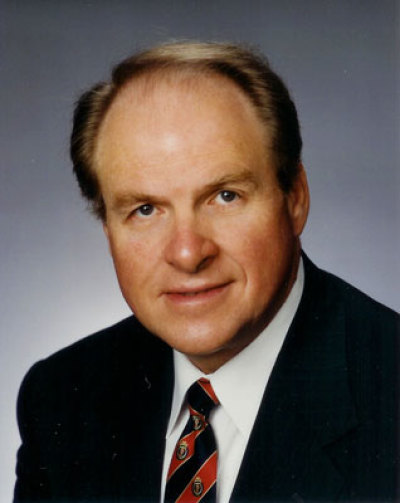Accurate information in an age of disinformation: The 'itching ears' syndrome (pt. 2)
People now go to media “seeking affirmation rather than information,” John Dickerson once opined on “CBS This Morning.”

While there’s much with which to disagree from CBS News and other establishment media, Dickerson accurately defined the problem in the age of information-disinformation.
The Apostle Paul warned that “itching ears” would cause people to listen only to teachers who said what they wanted to hear. (2 Timothy 4:3-4) What is true concerning biblical doctrine is also true generally.
In the age of information-disinformation the “itching ears syndrome” will drive people to take their information from sources that spin the story to their preferences.
“’Mass media’ is now an oxymoron,” said Katy Couric. She lamented that people “get their information and their content from different places, often those that affirm their existing beliefs.”
Thankfully, there are indeed many “different places” where people can now get their daily, hourly, moment-by-moment updates rather than the journalistic triumvirate reigning over the information feed mostly from New York.
Those “different places” emerged because people began to realize that the grand institutions of journalism were increasingly interjecting their own viewpoints, subtly tilting the reports, and becoming increasingly subjective.
The establishment media now may lament so many “different places” as news sources, but they have no one to blame but themselves.
In Part I of this series we noted what happens when the hubris of celebrity reporters collides with the hubristic presidency. The outcome is like the collision of matter and anti-matter: annihilation. In this case it is the obliteration of information that “we, the people” need.
The negative outcome of the contemporary media environment is that many of us have become accustomed to being spoon-fed the news and information that forms our beliefs and opinions.
It doesn’t take long for us to fall into the “itching ears” syndrome, clicking on channels that suit our political philosophy, scanning the internet for sonorous feeds, and occasionally rustling through the pages of a printed publication for “easy listening.”
For those readers who, like me, enjoy a smorgasbord of mixed metaphors, let me suggest another. Think of those little birds in a nest crying and chirping and waiting for their mother to fly in with a stomach full of pre-eaten, pre-digested food that she regurgitates into their wide-open mouths.
That is also an apt picture of the modern media transaction between information suppliers and consumers. The age of information becomes the age of disinformation when journalists become commentators more than reporters and receivers simply take in what the journalists have already digested.
I entered the media world in 1966, the late evening of the “golden age” of journalism. The newsroom of the large daily paper where I worked still throbbed with dynamism, creating a kind of music of its own.
The symphony, conducted by editors — the older among them still wearing green eyeshade caps — was played on clattering teletype machines, the bells of aging typewriters, and the percussion of police and fire squawk boxes telling us about incidents to which the city editor might need to dispatch a reporter.
More than twenty years later I returned for a visit. Eagerly I stepped off the elevator anticipating the vibrant atmosphere of the old days. Instead, I walked into a big room darkened for ease of staring into computer screens, no sound but the one-tone monotony of machines, and little interaction between the few human beings there. Hustling reporters had been replaced by information-crafters.
Quantitatively, I am grateful for the technological advances as I type this column on a computer. I can quickly make corrections, and jump to another site for research. But qualitatively, as one who briefly touched the age of classic journalism, I can report that we have lost much, both on the giver and receiver sides of the news transaction.
We have been too easily lulled into another manifestation of the “itching ears” syndrome: the “Amaziah affliction.”
Amaziah was the leader of the idolatrous religious establishment when Jeroboam was king of Israel. He was another in the long list of bad rulers of Israel and Judah. God would always raise up prophets to confront them. In Jeroboam’s age, God appointed Amos, a farmer who, in his own eyes, was a country bumpkin.
Amaziah, who saw himself as a court priest, ordered Amos: “Get out of here, you prophet! Go on back to the land of Judah, and earn your living by prophesying there! Don’t bother us with your prophecies here in Bethel. This is the king’s sanctuary and the national place of worship!” (Amos 7:12-13 NLT)
But Amos would not run, and spoke searing truth to Amaziah, who fancied himself a purveyor of information to the king, making sure the ruler heard only what pleased his itching ears.
The problem in Israel in those days was that the religious establishment, the palace, and the people had all lost the standard for discerning and judging between wrong and right, true and false. The Amaziah-types could twist the information to suit king and people alike.
In an age of information-disinformation we must judge for ourselves. We must recover the strong center of the biblical Judeo-Christian worldview, and evaluate what we hear by that standard.
Also, we must glean from a wide variety of sources, including those who don’t appeal to our “itching ears.”
Otherwise we will continue to be huckstered by purveyors of disinformation and misinformation.
Wallace Henley is a former pastor, White House and congressional aide, and author of more than 25 books. His newest is Two Men From Babylon: Nebuchadnezzar, Trump, and the Lord of History, published by Thomas Nelson.




























